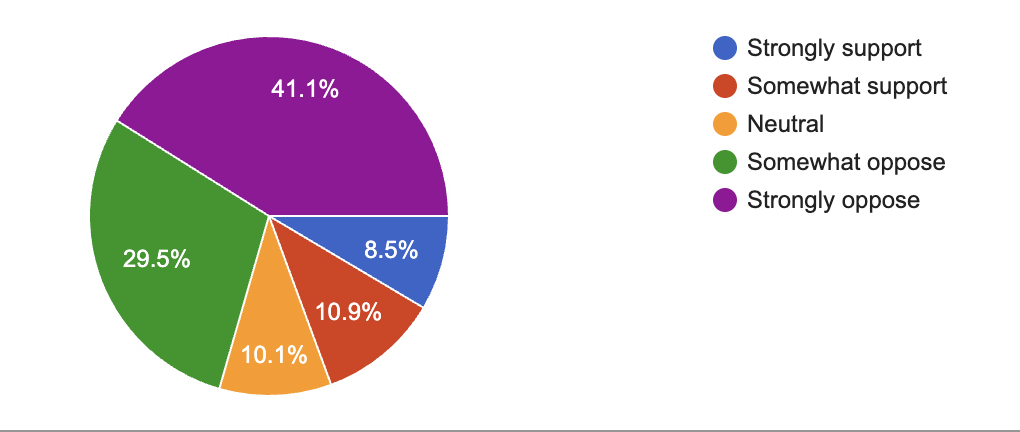The Sidwell English Department announced in the first week of school that it will replace at-home essays with in-class writing this year, with department leaders citing increased cheating and the rise of AI tools as the reason for the change.
This summer, a four-person committee of English teachers proposed the switch to in-class essays, which will run as a pilot for the first semester. After months of discussion and research into how other schools are responding to AI use, the group recommended in-class writing as a way to keep English instruction focused on close reading, analysis and clear expression.
The department reached this consensus almost immediately, English Department Head Zachary Harvat said.
“Our main goal is just get people to think about literature, think about interpretation, how GPTto support it, [and to] be able to see things in what they read,” English Teacher Ashish Patwardhan said. “ChatGPT, unfortunately, made it much harder for people to do their own thing — they would resort to it.”
While 73.7% of 129 students surveyed said they believe the shift will help curb AI use, 70.6% said they strongly or somewhat oppose the decision. Many worry the new format will increase stress and reduce their analytical growth as writers.
“This change shows the school’s lack of confidence in their ability to regulate the use of AI, as well as their lack of trust in their students,” wrote sophomore Anderson Campello, a member of the Honor Committee. “The honor code states that the school aims to create an environment where scholarship and trust can flourish, but the faculty expect this trust to be one sided.”
65.1% of students believe the change will lead to biased grading, but Harvat promises the grading process will remain consistent.
“We always have grade norming sessions, where we’ll all grade the same essay together and then talk about our feedback and talk about what kind of grade we would assign it,” he said. “We’re going to be doing even more of that this semester, just to make sure that we’re on the same page about expectations and grades.”
Teachers added that the new policy does not eliminate process-oriented writing. Students will still have opportunities to draft and workshop essays during class time with teacher support.
“One of the things we didn’t want to lose was our ability to teach writing as a process,” Patwardhan said. “We’re still committed to meeting with students, talking about their ideas and improving drafts. The goal is to make sure they’re doing the work themselves, without external aids.”
“We know it feels different and scary,” Goodwin said. “But we’re scaffolding so people feel confident and know exactly what we’re expecting.” Although Goodwin added that students have only asked her clarifying questions about the new policy, Campello claimed students do not want to discuss this with their teachers.
“It really makes it sound like you’re a person who’s using AI or cheating, and that’s the only reason why you would be concerned about this rule,” he said.
Forty-two students surveyed completed an optional short answer citing their concerns with the new policy.
“[I]t will definitely lead to a big dip in my grade, not because of AI or outside help, but because of the inevitable classroom distractions,” one student wrote.
“As someone with extra time accommodations, partly due to poor executive functioning skills, I usually do my best work over multiple days of outlining and meeting with my teacher,” another added. “[A]lthough it prevents cheating and the use of AI, some students may willingly want to spend more time and put more effort into essays.”
Still, the English teachers are dedicated to ensuring a smooth transition to a new format that they understand students are nervous about, according to Goodwin.
“My advice to kids who are feeling nervous is that you actually do this all the time. You just don’t think about it that way,” she said.
English teachers have already met to discuss writing from practice essays, and have been pleasantly surprised with the results, Harvat said.















































